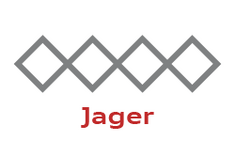Jager: Difference between revisions
Lindenholt (talk | contribs) No edit summary |
Lindenholt (talk | contribs) No edit summary |
||
| Line 42: | Line 42: | ||
The company's roots trace back to being the result of Bart de Jager's motorcar racing hobby, which had steadily been gaining popularity since the end of the [[First Great War (Sunalaya)|First World War]]. Jager was the most active in the motor car races that took place in the Dorninger Ring, where his cars saw great successes. After pressure from his investors, Jager also started with the production of cars suitable for driving in traffic. | The company's roots trace back to being the result of Bart de Jager's motorcar racing hobby, which had steadily been gaining popularity since the end of the [[First Great War (Sunalaya)|First World War]]. Jager was the most active in the motor car races that took place in the Dorninger Ring, where his cars saw great successes. After pressure from his investors, Jager also started with the production of cars suitable for driving in traffic. | ||
After the [[Second Great War (Sunalaya)|Second World War]] the company was nationalised and put under the [[Rijksautowerken]] company. While many Lindian car manufacturers that were active before the war were directly consumed by the Rijksautowerken brand, Jager survived as it picked up production in Capsland, where the company had bought a workshop to continue producing spare parts for existing models during the war. | After the [[Second Great War (Sunalaya)|Second World War]] the company was nationalised and put under the [[Rijksautowerken]] company. While many Lindian car manufacturers that were active before the war were directly consumed by the Rijksautowerken brand, Jager survived as it picked up production in Capsland, where the company had bought a workshop to continue producing spare parts for existing models during the war. In 1949, together with Rijksautowerken both companies formed the Rijksautowerken Group, which later also included the [[Umbrellya|Umbrelliet]] [x] brand of automobiles and Lindian lorry and bus manufacturer [[DAME]]. | ||
Today the brand is known for designing, engineering, producing and marketing luxury vehicles. With a total of 1.9 million cars sold under the Jager marque, it is one of the largest car manufacturers of the [[Sunalaya|world]]. | Today the brand is known for designing, engineering, producing and marketing luxury vehicles. With a total of 1.9 million cars sold under the Jager marque, it is one of the largest car manufacturers of the [[Sunalaya|world]]. | ||
Revision as of 18:10, 20 April 2019
 | |
 Jager head office in Bijsterhuizen | |
| Naamloze Venootschap | |
| Traded as | JAG |
| Industry | Automotive |
| Founded | Traditional (25 April 1919) Post-WW2 (1 January 1949) |
| Founder | Bart de Jager |
| Headquarters | Bijsterhuizen , Lindenholt |
Number of locations | 11 production facilities in 9 countries |
Area served | Worldwide |
Key people |
|
| Products | Luxury vehicles |
Production output | |
| Revenue | |
| Total assets | |
| Total equity | |
| Owner | Rijksautowerken Group (80%) |
Number of employees | 91,674 (2018) |
| Website | [1] |
Jager, officially Jager NV, is a Lindian car manufacturer with its headquarters in Bijsterhuizen, Brusseland. The company was founded in 1919 by Bart de Jager, who is also the namesake of the company. Jager in Dutch means hunter. Jager is a member of the Rijksautowerken Group, with the parent company owning up to eighty percent of the company's shares.
The company's roots trace back to being the result of Bart de Jager's motorcar racing hobby, which had steadily been gaining popularity since the end of the First World War. Jager was the most active in the motor car races that took place in the Dorninger Ring, where his cars saw great successes. After pressure from his investors, Jager also started with the production of cars suitable for driving in traffic.
After the Second World War the company was nationalised and put under the Rijksautowerken company. While many Lindian car manufacturers that were active before the war were directly consumed by the Rijksautowerken brand, Jager survived as it picked up production in Capsland, where the company had bought a workshop to continue producing spare parts for existing models during the war. In 1949, together with Rijksautowerken both companies formed the Rijksautowerken Group, which later also included the Umbrelliet [x] brand of automobiles and Lindian lorry and bus manufacturer DAME.
Today the brand is known for designing, engineering, producing and marketing luxury vehicles. With a total of 1.9 million cars sold under the Jager marque, it is one of the largest car manufacturers of the world.